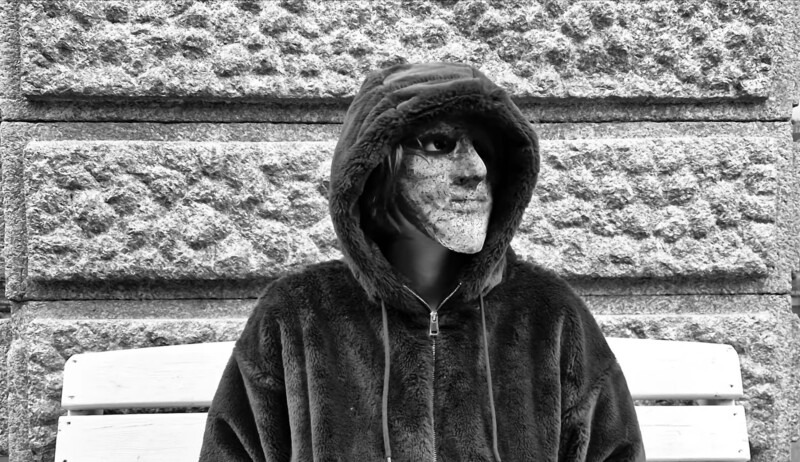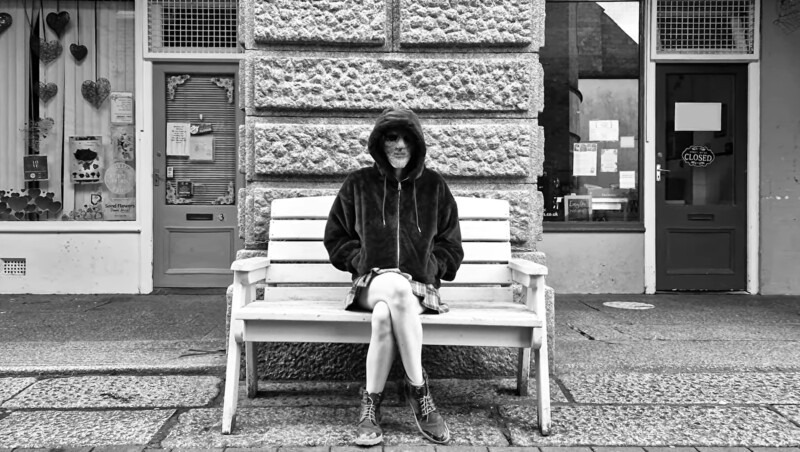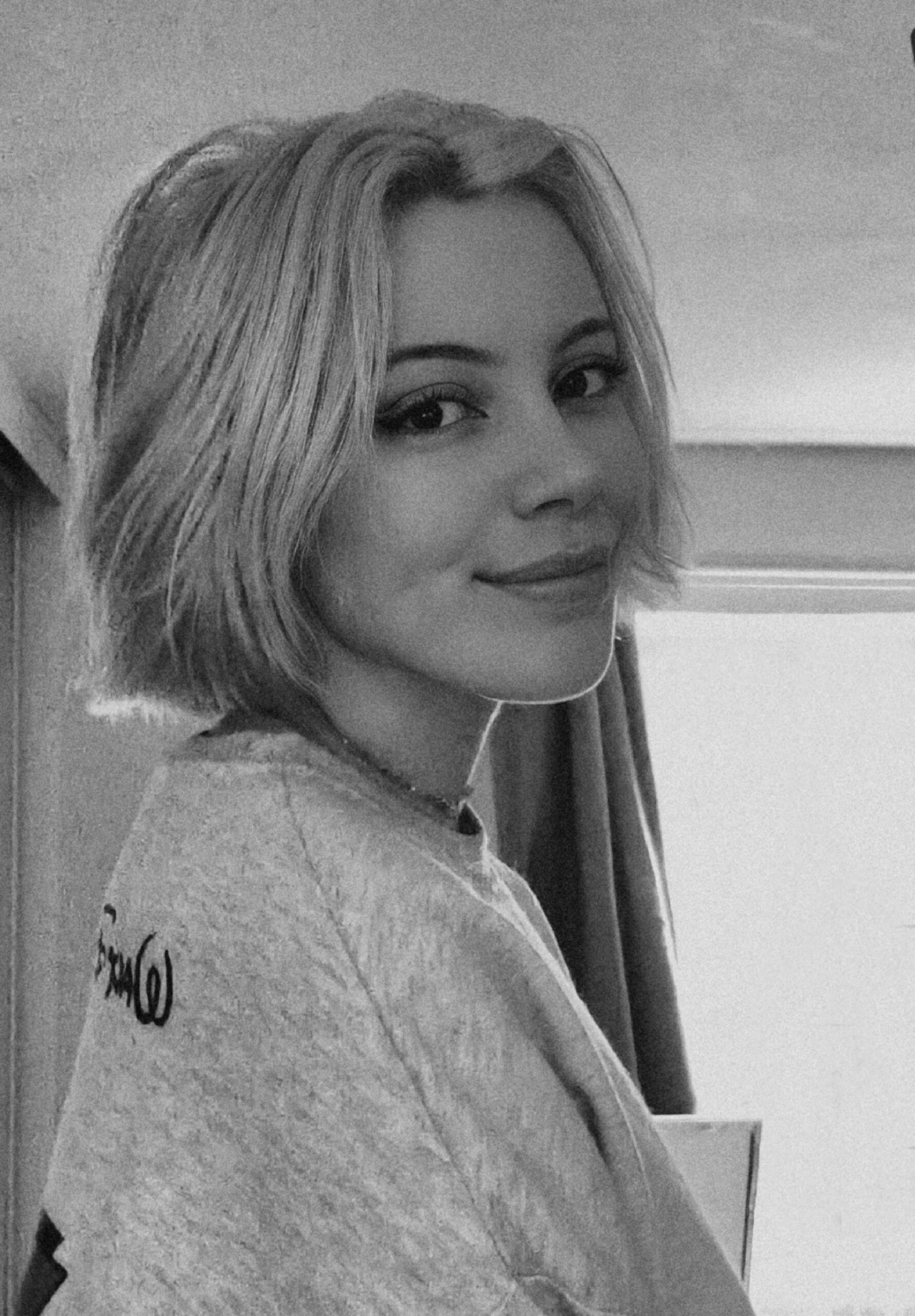
Filmmaker Amy Eve (pictured below) recently released her debut short film ‘Masking’, which highlights how many young autistic people, especially females, mask their autism to better fit in with their peers and society’s expectations.
Here, Amy writes about how she came to create her film, the reactions to it, and the importance of highlighting the issue of masking, while encouraging young women not to hide their true selves…
Being a filmmaker gives you a platform with the opportunity to advocate and give a voice to those who need one within a creative outlet.
Neuro-divergency is something I have wanted to advocate for since discovering my passion for filmmaking. Representation, inclusion and awareness has always lacked in media and sometimes when it has tried to be represented, it may not be done in an accurate or respectable way. With my platform, I wanted to be a voice for the neuro-divergent community and help inspire others and break any negative stigma. This is why I made ‘Masking’.
What does the term ‘Masking’ mean? It is the act of hiding or suppressing one’s behaviours and personality to conform to social standards, and instead presenting a more socially-acceptable approach from learned neurotypical behaviours. Over time, masking can cause severe psychological effects.
I have met neuro-divergent individuals where masking has had a huge psychological impact on them. They had developed a mask which identified as someone entirely different. For them, it is a defence mechanism. I learned how they would ‘mirror’ others who appeared socially accepted in order to protect themselves. The more they would mask, the more it became ‘natural’ to them. Manual masking became automatic, and one individual explained how they had psychologically transformed into someone they didn’t even recognise – not just mannerisms, everything.
As I say in my film: ‘The longer it (the mask) stays on, the more it learns to protect’. Learning of the ways the brain would adapt to protect them was fascinating but also heart-breaking. The neuro-diverse individuals I have met were incredible people who had such a unique and creative outlook on things – their societal pressure to mask is awful. This is why I made Masking, to not only bring more light to the shadowed term, but to also show the underestimated, detrimental impact it can have on someone, through metaphorical imagery and art.
My film explores different aspects of Masking. For some, masking starts very young by mirroring their peers. For others, Masking can start later on in life. A defence mechanism from negative feedback projected on one’s neurodiverse mannerisms creates the need to build a barrier, the ‘mask’. As the film goes on, we learn of different ways Masking can take hold. After the Mask starts to build, one may want to be able to express themselves, but they are not in a safe/accepting environment to do so.
In other cases, the mask can become so ‘thickened’, its psychological damage can be permanent. I also represent the fortunate victims of society’s discrimination that are able to break free of the mask with the support and acceptance they deserve. I showed these different examples, as Masking can take many different forms and can be a whole different situation for people. These all fall under the masking umbrella.
I wanted to show the multiple reasons why they, voluntarily or not, mask, along with metaphorical imagery of how it feels to some. A word that has been described to me of how it felt was ‘suffocating’. There are so many impactful, damaging ways that affect individuals rather than just the commonly used term of ‘bullying,’ because it is so much more than that. The film’s focus is on ‘social conformity,’ and how it is the cause of masking.
Those who are deemed ‘divergent’ or ‘different’ are brought up with the pressure to conform to society’s standards of normality, and shunning anything which it deems diverse (may I point you to one of my favourite films ‘Divergent’ for an example of that). I present the ‘author of conformity’ as an anonymous entity, one who dismisses any divergence as a hindrance and does not bother to see it for what it really is – with this, I portray society.

The making of Masking was a brilliant experience, and one that made me feel very proud of myself as a beginner filmmaker. Not only with the message I wanted to send and it being received and praised by neurodivergent individuals, but also as a beginner filmmaker. Independently, I scouted, produced, directed, edited, prop designed, wrote and occasionally shot my film. Having people reach out to me privately about my first published film, and conveying how they finally feel ‘seen’, gave me so much motivation to carry on using my platform as a way to bring awareness of diversity in all contexts.
I want to say this to the neurodivergent community. I promise, you are NOT alone, and I know it feels like you are, but so many neurodivergent people are in your situation that they feel they must hide and mask. The best thing you can do for yourself is embrace who you are. Embrace your passions, your hobbies. Unconstrict your stims, the things that make you happy, because constant constriction will lead to a mental build up which can be incredibly damaging. After all, as I said in my film, you can only inflate a balloon so much until it pops.
Surround yourself with people who will love you for YOU. Never feel the need to conform to someone – if they are not willing to see you for you, then they’re not worth it. Join support groups and meet people who can relate to you. Realising you’re not alone in a situation that can feel isolating is such a relieving feeling. People will try to empathise of course, but nothing is better that a genuine relationship.
From what is said in my film, it’s important to not see your divergence as a hindrance, but as a gift. Exploit it for the individuality and creativity it gives you, and you will see it and yourself in a different light. Society is slowly but surely becoming more accepting of divergence in all aspects, and it’s people like me who strive to expedite that acceptance.
I will continue to be a voice for those who deserve one. I’m only just stepping foot into the industry, but it has been a strong step. The feedback I have had on my film has been incredible. I’ve had professionals asking to use my film, I have had people message me saying they finally feel seen.
THIS is why I do what I do.
Stay creative, you’ve got this.
By Amy Eve
Follow Amy and get in touch with her via Twitter, Instagram, TikTok and YouTube: @amyevefilms
Watch Amy’s short film ‘Masking’ via YouTube, by clicking here.

